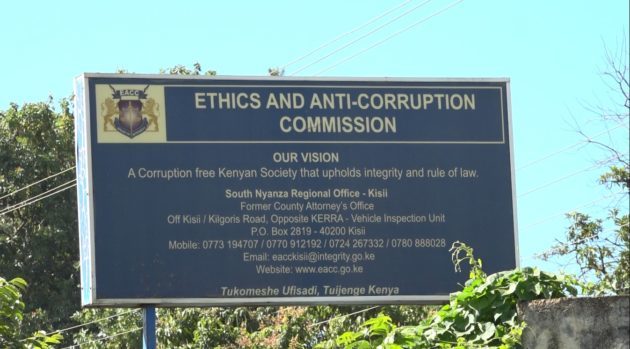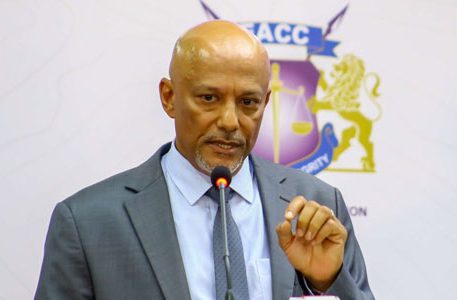Government institutions involved in the fight against corruption have opposed a bill amending anti-corruption laws that prevent malpractice in the procurement process.
The Ethics and Anti-Corruption Commission (EACC), the Office of the Attorney General, and the Office of the Director of Public Prosecutions (ODPP) argue that the 2023 Amendment Bill to the Anti-Corruption and Economic Crimes Act, sponsored by North Mbeere MP Geoffrey Ruku, undermines the fight against corruption.
The bill, being handled by the Parliamentary Committee on Justice and Legal Affairs (JLAC), proposes the removal of sections 45(2) b and c of the original law that prohibit the flouting of procurement laws.

Additionally, the bill allows for project implementation before plans are made.
In its memorandum to JLAC chaired by Tharaka MP George Murugara, the EACC maintains that removing these two corruption offenses will create loopholes for corrupt individuals to continue plundering the country.
“Public procurement contributes between 10 and 13 percent of the National Gross Wealth, and therefore public funds used in procurement must be protected,” the EACC stated.
On its part, the Office of the Attorney General, led by Justin Muturi, said that the proposed amendments go against “the anti-corruption policy and international agreements requiring the improvement of laws to fight corruption.”
“It is appropriate for the bill to remove offenses and violations of laws in the procurement of public goods from the list of corruption and economic crimes,” a statement from Mr. Muturi’s office said.

The ODPP said that the proposal to annul section 45(2) b would have a significant impact on the legal framework for protecting public funds from theft.
“Procurement processes are prone to corruption, especially in public service. Thus, there is a need to ensure that current procurement laws are observed to safeguard public assets during procurement in public service,” the office said.
The ODPP maintains that the existence of an offense and the implementation of a project without prior planning were aimed at protecting the government from the risk of legal action.

The anti-corruption organization, Transparency International (TI), has also opposed the bill.
“The bill goes against the public interest, principles of public finance management, standards of leadership and good governance, and accountability,” said TI Director General Sheila Masinde.







More Stories
Kingdom Bank Powers Latema Travels’ Expansion with 50-Bus Financing Deal
Infotrak Survey Ranks Kenya’s Top MPs, Salasya Disputes Position
Aden Duale: Every Kenyan Has a Right to Identification Documents